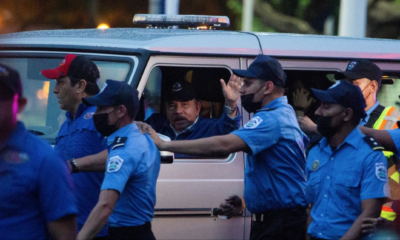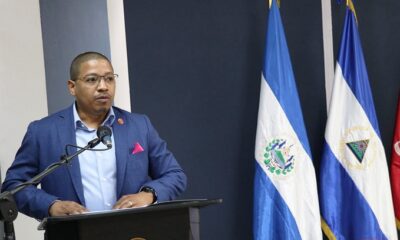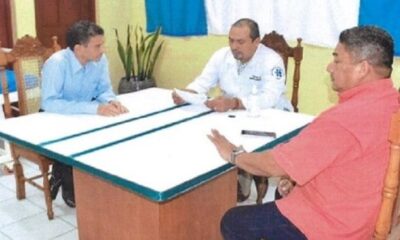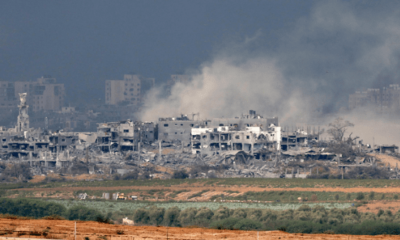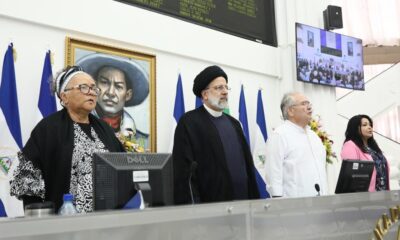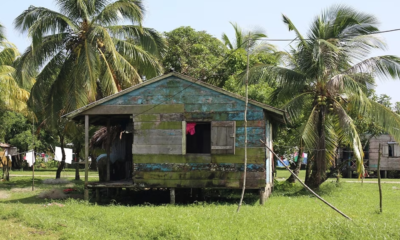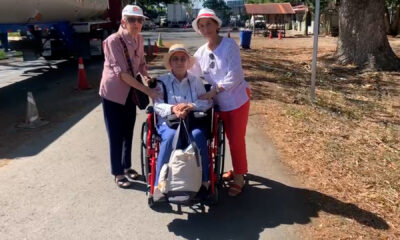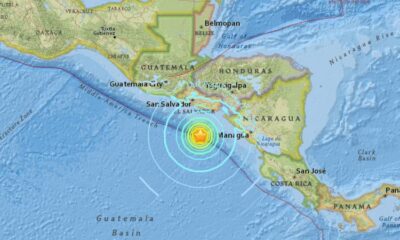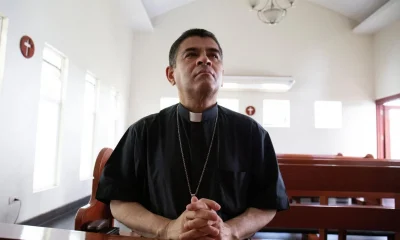Central America
Record exodus: over 800,000 nicaraguans forced to leave due to political crisis
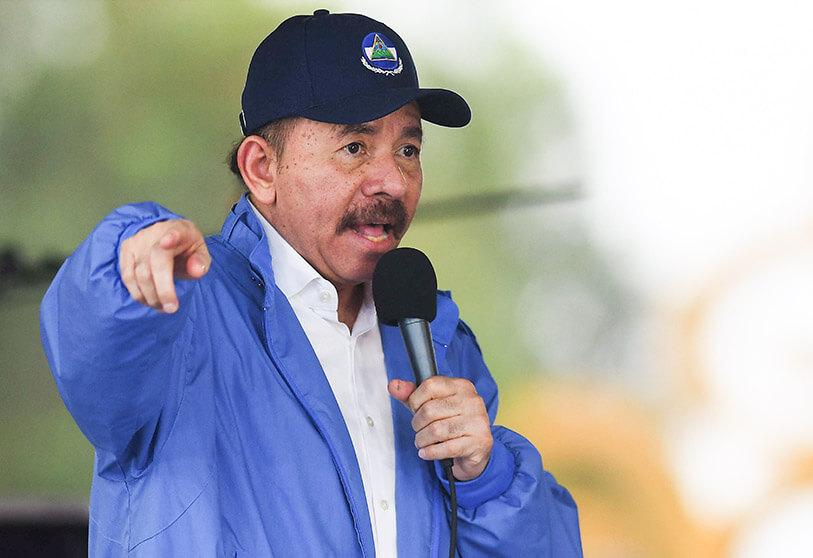
At least 800,000 Nicaraguans, representing 11.8% of the country’s estimated population of 6.8 million, have been forced to leave Nicaragua since April 2018, when a social and political crisis erupted in the Central American nation. This exodus is the “largest in history,” according to the humanitarian NGO Colectivo Nicaragua Nunca Más, which reported on Thursday.
“To date, around 800,000 Nicaraguans have been forcibly displaced to other countries due to political crisis and state violence,” reported the Collective in its statement. The organization, which is made up of Nicaraguan exiled activists based in Costa Rica, further noted, “This is the largest human displacement in Nicaragua’s history. In Costa Rica alone, over 250,000 Nicaraguans are currently applying for refugee status.”
The NGO stated that, “as a result of relentless repression” under Daniel Ortega’s government, “the country is facing the largest exodus in its history, mainly to the United States, Costa Rica, Mexico, and Spain.”
The organization also expressed concern over “the conditions in host countries,” saying that, “in most cases, [migrants] are unable to access health care, education, dignified housing, social security, job opportunities with adequate pay, or food security.”
In a prior report on the ‘Situation of Forced Displacement of Nicaraguans’ published in June 2023, the organization indicated that around 605,043 Nicaraguans had fled the country due to state repression against opposition members, religious figures, and critics of the Sandinista government.
This means that nearly 200,000 Nicaraguans left their homes and fled their country in the past 16 months alone.
According to recent data from the United Nations High Commissioner for Refugees (UNHCR), cited in February by the UN Group of Human Rights Experts on Nicaragua, a total of 440,280 Nicaraguans, or 6.5% of the population, sought asylum or refuge in third countries, mainly in the United States and Costa Rica, between 2018 and June 2023.
As of June 2023, UNHCR data also showed that 18,545 Nicaraguans had been formally recognized as refugees.
Central America
Panama grants Martinelli 72-hour extension to travel to Nicaragua
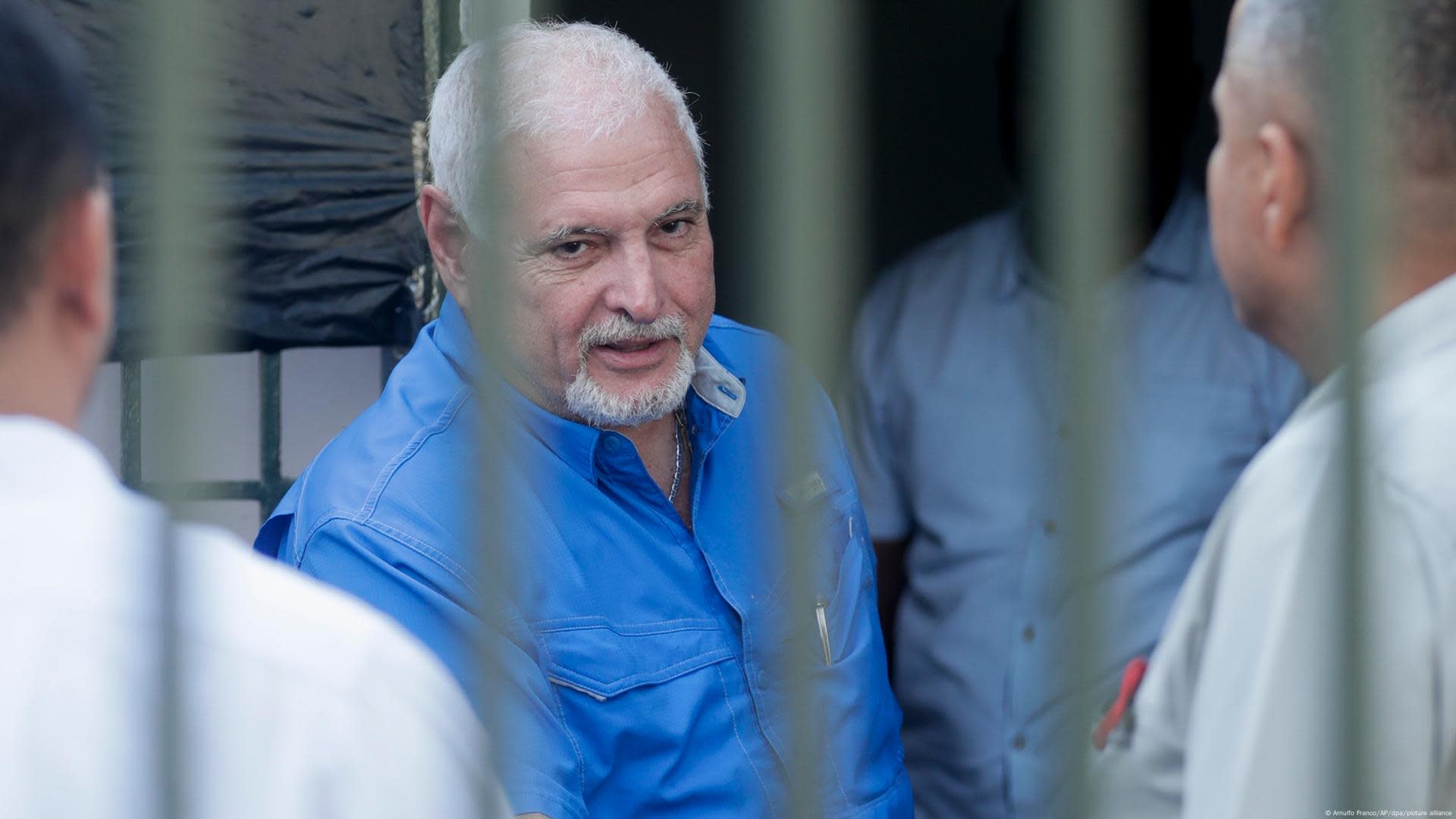
On Monday (March 31, 2025), Panama extended the safe-conduct pass for former President Ricardo Martinelli by three more days to allow him to travel to Nicaragua, after the Central American country refused to receive him due to concerns over an alleged Interpol arrest warrant.
“The National Government has decided to extend the validity of the safe-conduct pass for an additional seventy-two (72) hours, until the end of Thursday, April 3, 2025,” the Panamanian Foreign Ministry stated in a communiqué. The original permit was set to expire Monday at midnight (05:00 GMT on Tuesday).
The Foreign Ministry explained that regarding the ‘humanitarian asylum’ granted to Martinelli last Thursday, which was set to expire Monday at midnight, the Nicaraguan government requested clarifications about an apparent Interpol alert, which had already been dismissed as inadmissible.
Additionally, the Panamanian Supreme Court of Justice, as the highest authority of the Judicial Branch, stated on Monday that it had “no objections” to granting asylum and a safe-conduct to Martinelli, as it falls under the jurisdiction of the Executive Branch.
Central America
U.S. Homeland Security Secretary urges Mexico to strengthen Guatemala border
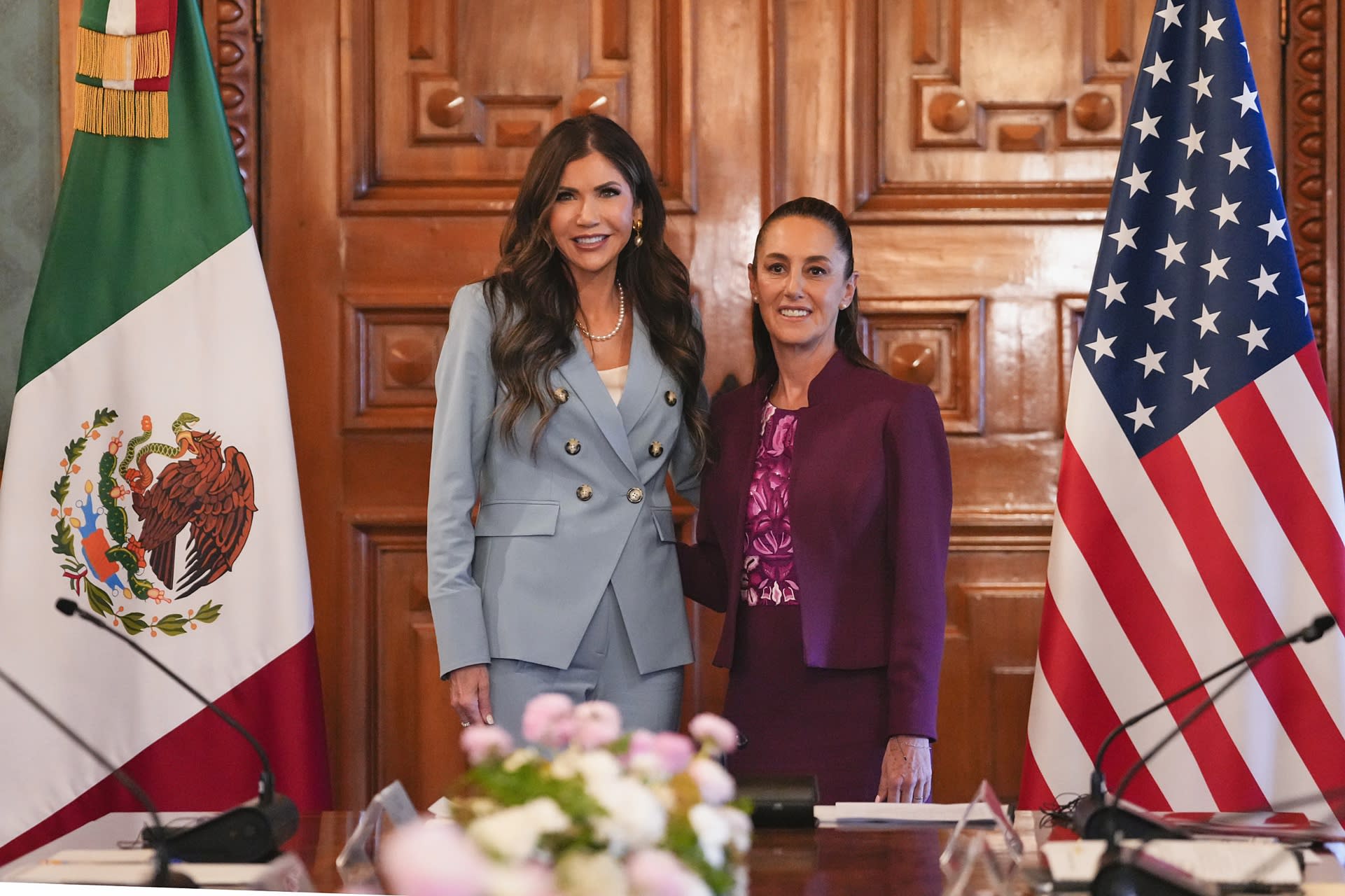
U.S. Homeland Security Secretary Kristi Noem revealed on Monday that during last week’s meeting with Mexican President Claudia Sheinbaum, she urged Mexico to reinforce its border with Guatemala and share biometric datawith U.S. authorities.
“I gave her a list of things that President Trump would love to see. And it was exceptional. It was supposed to be a half-hour meeting, but we talked for nearly two hours. It was very productive,” Noem said in an interview with Fox News.
The Homeland Security Secretary requested that Sheinbaum, who has already deployed 10,000 National Guard troopsalong Mexico’s northern border with the U.S., also secure Mexico’s southern border with Guatemala.
Noem added that she also asked the Mexican president to share biometric data with the U.S., to which Sheinbaum responded that she was “willing to discuss it,” although she acknowledged that it could be a controversial issue in her country.
Central America
Panama police clarifies that Interpol alert for Martinelli is still pending
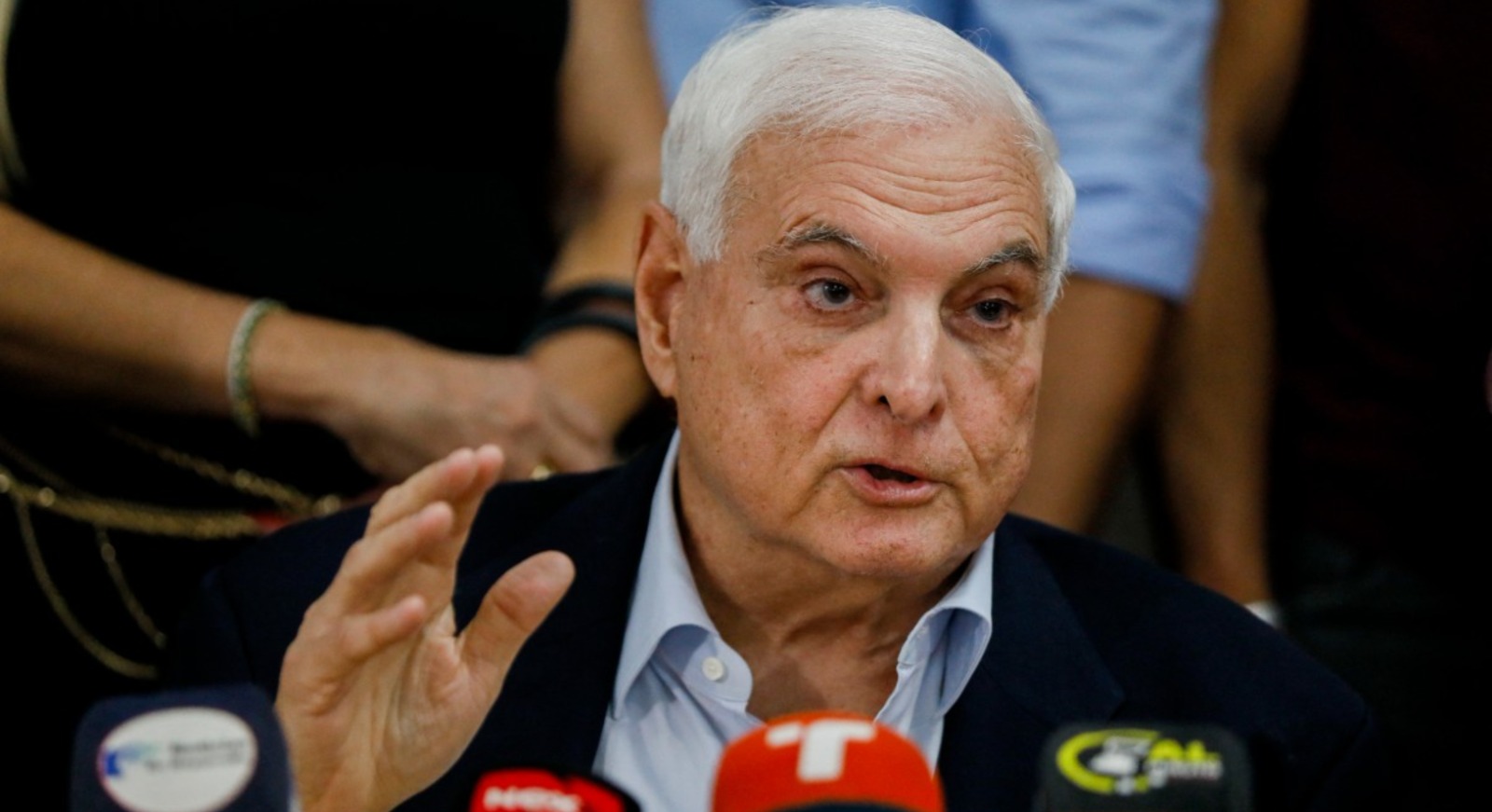
Panama’s National Police clarified on Sunday that an Interpol alert request for former President Ricardo Martinelli (2009-2014) is still under review and has yet to be confirmed. Martinelli was granted a safe-conduct pass last Thursday to leave the Nicaraguan embassy, where he has been seeking asylum since February 2024 after being convicted of corruption.
“The National Police clarifies that there is currently an active process for an Interpol alert, requested by Judge Baloisa Marquínez, against former President Ricardo Martinelli. This request must be analyzed by Interpol’s General Secretariat (headquartered in France) for approval or rejection. If approved, it will be notified to member countries,” the police stated in a press release sent to EFE.
According to the statement, “at the moment, it remains an ongoing procedure, and former President Martinelli does not have a confirmed alert.”
The announcement came hours after National Police Director Jaime Fernández had told the press that an “Interpol alert” for Martinelli had been received on Friday.
-

 International4 days ago
International4 days agoSon of journalist José Rubén Zamora condemns father’s return to prison as “illegal”
-

 International4 days ago
International4 days agoMiyazaki’s style goes viral with AI but at what cost?
-

 Central America2 days ago
Central America2 days agoU.S. Homeland Security Secretary urges Mexico to strengthen Guatemala border
-

 International2 days ago
International2 days agoTrump urges Putin to reach peace deal
-

 Central America3 days ago
Central America3 days agoPanama police clarifies that Interpol alert for Martinelli is still pending
-

 International3 days ago
International3 days agoDeportation flight lands in Venezuela; government denies criminal gang links
-

 Central America2 days ago
Central America2 days agoPanama grants Martinelli 72-hour extension to travel to Nicaragua
-
Central America5 days ago
Nicaragua revokes legal status of 10 more NGOs, bringing total to over 5,600




















